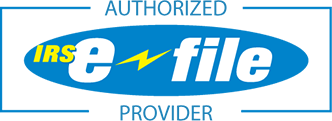

Whether registering your child for a sports league or taking them to a trampoline park, a waiver form must be signed, acknowledging the potential dangers involved and that the organization will not be held liable for any injuries. Even setting up an account on a mobile app requires the user to agree to abide by the terms of service. These agreements are necessary to mitigate risk and protect organizations from litigation that could have damaging effects. Having official agreements up front is essential to set expectations of all parties involved.
Just as trampoline parks and sports leagues recognize the potential for danger, so do trucking companies. After all, driving a 27-ton vehicle carrying someone else’s cargo for many hours every week is risky business. It’s very common in the trucking industry for owner operators to work as independent contractors for larger trucking companies; in cases like this an owner operator lease agreement serves as the mechanism to establish the working relationship between trucking companies and owner operators, clarifying expectations and protecting both the organization and the owner operator.
There’s three main types of owner operator lease agreement: lease-purchase agreements, lease programs, and lease-on agreements.
Lease-purchase agreements involve making a down payment on a truck, but the operator will eventually own the vehicle. During the agreement’s term, the operator drives for the carrier that leased the truck, functioning much like an owner operator using company equipment.
In a lease program the trucking company “lends” a vehicle to an independent owner operator to use for the job, but there’s no requirement for the owner operator to purchase the truck at the end of the lease.
In a lease-on agreement the independent owner operator enters a contract with a trucking company to provide their services and equipment to move freight while maintaining ownership of their own truck.
The Federal Motor Carrier Safety Administration (FMCSA) regulates lease agreements to a certain degree. They have established a Truck Leasing Task Force (TLTF), charged with examining the terms and conditions in common owner operator lease agreements to ensure equitability. This task force will furnish all findings of adverse impacts and recommend best practices to the FMCSA. Upon final review, a comprehensive report will be submitted to the Secretary of Transportation and appropriate congressional committees.
Some essential elements of an owner operator lease agreement include fair payment structure using industry-standard rates, payment schedules, payment methods, load commitments, maintenance responsibilities, and insurance requirements.
Typical rates for owner-operators entering into a lease agreement are between $300 and $1000 per month. Factors influencing these rates include the truck model and the age of the truck. The agreement should include a standard payment schedule, such as bi-weekly or monthly payments and preferred methods of payment like direct deposit.
Load commitments should be clearly defined. An owner operator needs to know up front how many miles he or she is expected to drive and/or how much cargo he or she is expected to transport every week. Trucking companies make commitments to their clients and utilize owner operators to fulfill their obligations; this requires meticulous planning based on drivers’ commitments. With expectations listed in the owner operator lease agreement both the trucking company and the independent owner operator can forecast more effectively.
It is essential for the agreement to outline the responsibilities related to equipment maintenance and repairs, distinguishing between operator and company duties. Routine maintenance tasks are usually expected of the operator, while major repairs fall under the company’s responsibility.
The agreement should specify the type of insurance that is required by the owner operator (ex: liability and cargo insurance) and minimum amounts of required insurance to safeguard both parties.
Dispute resolution clauses should be included in the agreement for maintaining fair relationships. Although most business engagements begin with a smile and a handshake, they don’t always end well. It is wise to expect the unexpected; building into the agreement a course of action for resolving conflicts sets a clear path forward should the need arise.
Whether it’s piece-parts that don’t fit nicely together in assembly or a well-designed football play that ends in a tackle for loss of yards, there’s times when best laid plans come to ruin. While something appears perfect on paper, it doesn’t always play out in the real world as expected. For this reason, fair termination rights and protections are critical elements to be included in the owner operator lease agreement. The agreement may sound favorable during negotiations, but one doesn’t know if a driver is a good fit until the rubber meets the road.
Balanced termination clauses can help to protect the interests of both parties, such as those allowing either party to end the contract with a 30-day notice. The clause should specify the situations where this can be invoked (e.g., breach of contract, operational changes). Additional clauses should be considered, such as those that cover unexpected scenarios and emergencies.
Consulting with a licensed attorney is highly recommended to safeguard your interests. Long, complex contracts can be challenging to interpret, and important details may be easily overlooked. Investing a few hundred dollars in legal advice can save you from dealing with potentially costly business issues down the line.
It is reasonable to ask whether drivers in an owner operator lease agreement still need to file Form 2290. The answer is: Yes, because the Heavy Vehicle Use Tax (HVUT) applies to those who operate heavy vehicles on public roadways regardless of who technically owns the vehicle. It is necessary for all drivers, whether directly employed by a trucking company or acting as an owner operator, to fulfill their tax obligations.
Simplify and streamline your filing with i2290, where you can enjoy the convenience of e-filing your return from anywhere with internet access, saving time and money. Reap the additional benefits of easily accessible digitally maintained records for seven years, filing VIN corrections and weight increase amendments for free, as well as our world-class customer support team who are always happy to help.
Our software will guide you through a short series of questions about you and your vehicle(s), then automatically calculate your taxes for you – it’s as simple as that. Then for a small fee, we will generate your stamped Schedule 1 in a matter of minutes! Ready for a simpler Form 2290 e-filing process? Create an account with i2290 today!
Special note: This article is for general purposes, and is not intended to provide, and should not be relied on for tax, legal, investment, or accounting advice. The best way to ensure you’re properly filing and paying appropriate taxes is by following IRS regulations and consulting with a tax professional.
We're confident that your experience with INSTANT 2290 will be the best Form 2290 e-filing you've ever had. If for any reason you are not satisfied, just contact support for a full refund. No questions. No conditions. Create your account to get started!